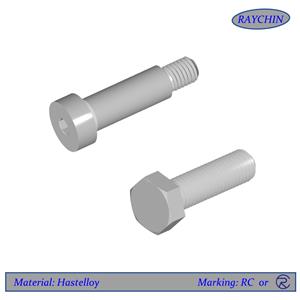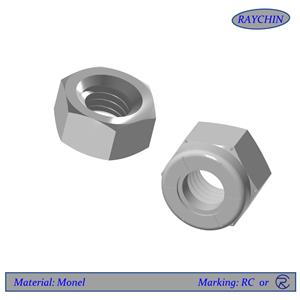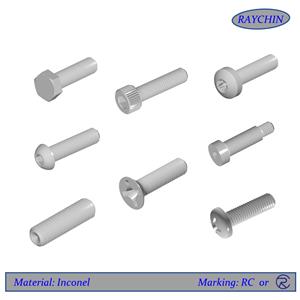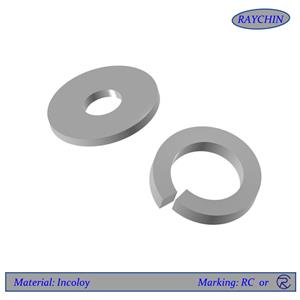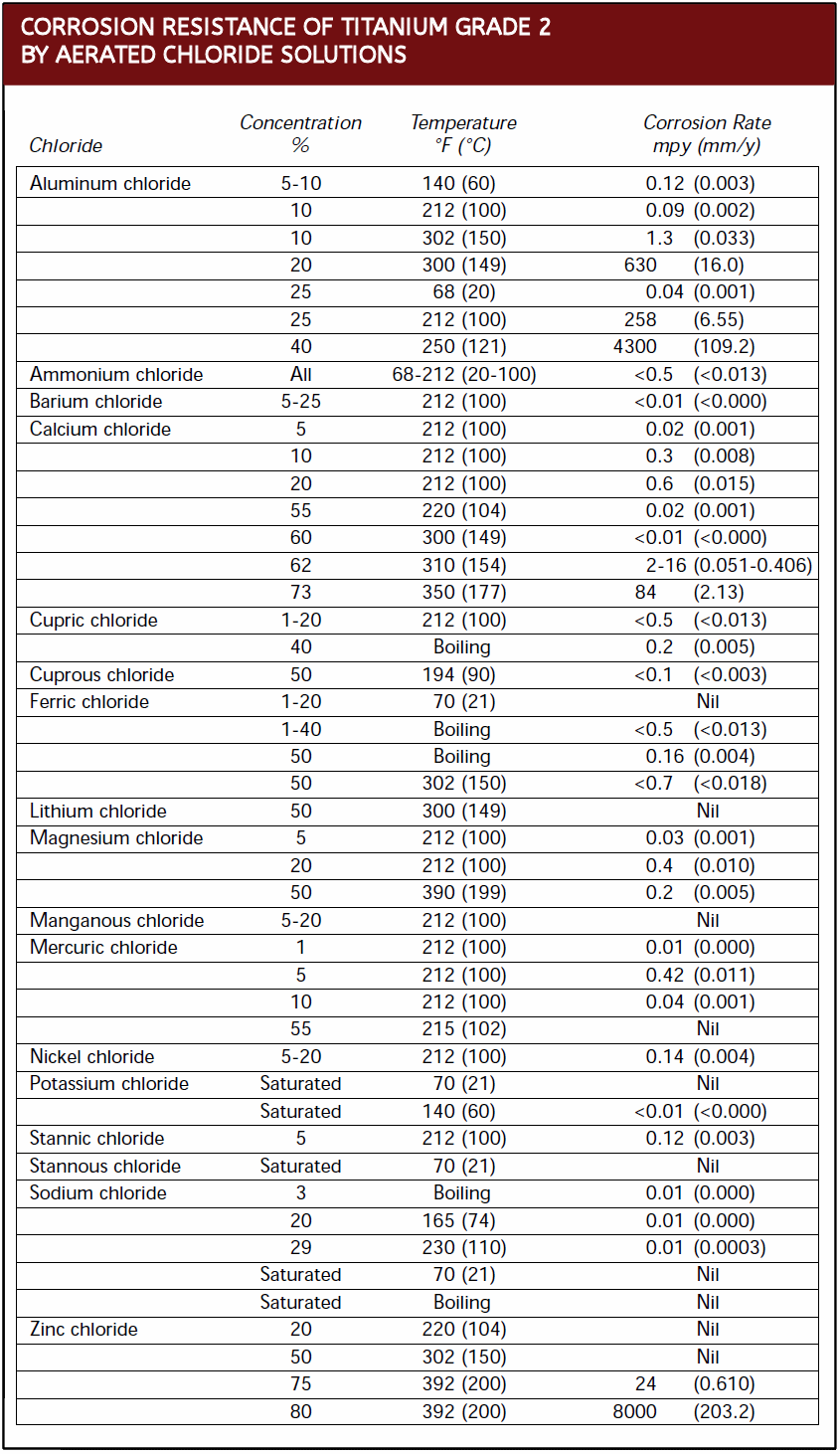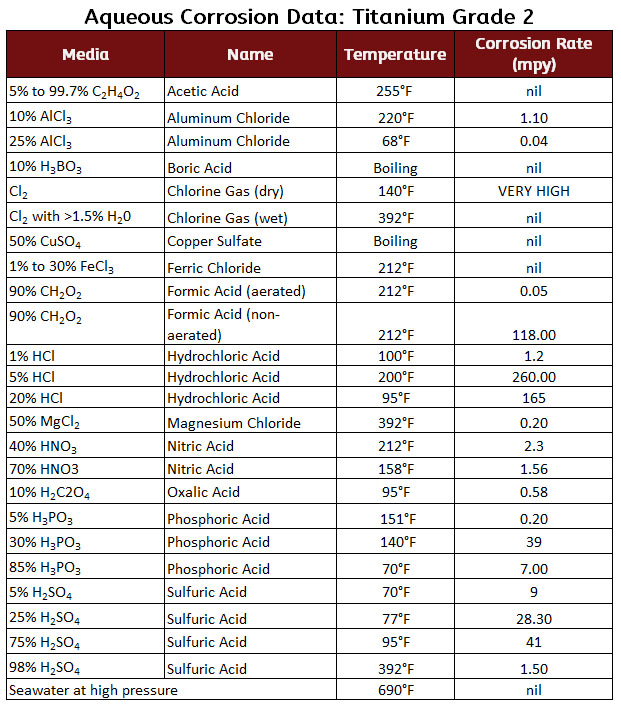Unique for its strength, lightness of weight and corrosion resistance

Excellent strength to weight ratio
Practically inert to chloride, chlorines and seawater
Mechanical Properties: tensile, yield & elongation charts
Titanium Grade 2, 5, 7 and 23 chemistry & specifications
Datasheets for Grade 2 and Grade 5
Titanium fastener styles
Titanium FAQ of the Week
Fastener stock & availability
Titanium fasteners are best known for being strong, lightweight, and corrosion resistant. They are critical to many industries including chlor alkali, marine, off-shore oil & gas, desalination, medical, and pulp and paper. Grade 2 and 5 are the most commonly used grades of titanium screws:
• Grade 2 (UNS R50400 / 3.7035) :Commercially pure titanium and the most common grade for screws.
• Grade 5 (UNS R56400 / 3.7165): Superior strength-to-weight ratio for a unique combination of corrosion and high strength.
Corrosion Resistance
Saltwater
Perhaps the most notable attribute of titanium fasteners are their superior corrosion resistance to salt water / seawater. Titanium screws have the unique ability to rapidly regrow their protective passive layer in the presence of oxygen, giving them unparalleled resistance to salt water environments.
• Proven resistance in decades of polluted seawater
• Usable in ocean depths of a mile beneath the surface
• Resistant to high velocity, rapidly moving currents as well as stagnant seawater
• Not affected by the presence of sulfides in seawater
• Ideal for sea splash and tide zones
• Seawater resistant to temperatures as high as 500°F (260°C)
Chloride, Chlorine & Other Media
Similar to salt water, titanium’s strong, protective oxide film which regenerates in oxygen makes it extremely resistant to oxidizing environments, and chlorides solutions, including hypochlorites, chlorates, perchlorates, sodium chlorite, and chlorine dioxide. This protection holds true as long as moisture is present – which can be as little as 50ppm of moisture. Oxidizing environments in the absence of water can cause titanium to rapidly corrode or even ignite. Titanium screws are not resistant to reducing media and acids
Lightweight Strength
Not only are titanium grade 5 fasteners extremely strong, offering 148 ksi UTS and 138ksi yield they are also incredibly light. With a density of 4.51 g /cm3, titanium has on of the the highest strength-to-weight ratios available to industry. Titanium Grade 5 screws are 4 times stronger than 316 stainless steel at nearly half the weight. This makes titanium fasteners ideal for applications that require both lightness of weight and excellent strength such medical, military and sporting goods.
Which Grade is Best for Your Application?
The most common grades of of Titanium fasteners are Grade 2 (commercially pure Ti) and Grade 5 (Ti 6Al-4V - high strength). Still not sure? With decades of materials expertise and industrial experience, our engineers can help you select the best titanium fastener for your application.
Titanium Grades, Chemistry & Specifications
Titanium Grade 2 / UNS R50400 / 3.7035 (Commercially Pure)
Unalloyed titanium; Commercially pure titanium is the most common grade of titanium utilized throughout industry due to its ease of availability and good properties.
Titanium Grade 2 Specifications: UNS R50400, ASTM B 348, AMS 4921, ASTM F 67, ISO 5832-2, EN 3.7035, ASTM F467 (Nuts), ASTM F468 (Bolts, Screws, Studs)
Titanium Grade 2 | Ti | Fe | O | C | N | H |
Min% | - | - | - | - | - | - |
Max% | Bal | 0.30 | 0.25 | 0.08 | 0.03 | 0.015 |
Titanium Grade 5 (Ti 6Al-4V) / UNS R56400 / 3.7165
Known as the “workhorse” of the titanium alloys, Ti 6Al-4V, or Grade 5 titanium, is 2x stronger than titanium grade 2. This alloy offers high strength and light weight, useful formability and high corrosion resistance. Ti 6AI-4V finds many uses in the aerospace, medical, marine and chemical processing industries.
Titanium Grade 5 Specifications: UNS R56400, EN 3.7165, ASTM - B265, B348, B381, B861, F467 and F468, AMS - 4911, 4928, 4935, 4965 and 4967, MIL-T - 9046 and - 9047, EN 3.7165, ASTM F467 (Nuts), ASTM F468 (Bolts, Screws, Studs)
Titanium Grade 5 | Ti | Al | V | Fe | O | C | N | H |
Min% | - | 5.5 | 3.5 | - | - | - | - | - |
Max% | Bal | 6.75 | 4.50 | 0.30 | 0.20 | 0.08 | 0.05 | 0.0150 |
Titanium Grade 7 (Ti-0.15Pd) / UNS R52400 / 3.7235
Grade 7 is the most corrosion resistant of all titanium alloys and is typically used in chemical processes and production equipment components. Similar to Grade 2, but with the addition of 0.12 to 0.25% palladium, Grade 7 has enhanced corrosion resistance to reducing acids and localized attack in hot halides.
Titanium Grade 7 Specifications: ASTM - B265, B337, B338, B348, B363, B381, B861 and B862, EN 3.7235, ASTM F467 (Nuts), ASTM F468 (Bolts, Screws, Studs)
Titanium Grade 7 | Ti | Fe | Pd | O | C | N | H |
Min% | - | - | 0.12 | - | - | - | - |
Max% | Bal | 0.30 | 0.25 | 0.25 | 0.08 | 0.03 | 0.0150 |
Titanium Grade 23 (TI 6AL-4V ELI) / UNSR56401 / 3.7165
Titanium grade 23 or TI 6AL-4V ELI is an Extra Low Intersticial grade. This grade is similar to Grade 5, but because of the low intersticials, its mechanical properties are enhanced. This ELI grade is often found in more demanding medical device applications as well as industrial applications.
Titanium Grade 23 Specifications: UNS R52400, ASTM - B265, B348, B363, B381, B861, B862 andF136, AMS - 4907, 4930 and 4956, EN 3.7165, ASTM F467 (Nuts), ASTM F468 (Bolts, Screws, Studs)
Titanium Grade 23 | Ti | Al | V | Fe | O | C | N | H |
Min% | - | 5.5 | 3.5 | - | - | - | - | - |
Max% | Bal | 6.50 | 4.50 | 0.25 | 0.13 | 0.08 | 0.03 | 0.0125 |

